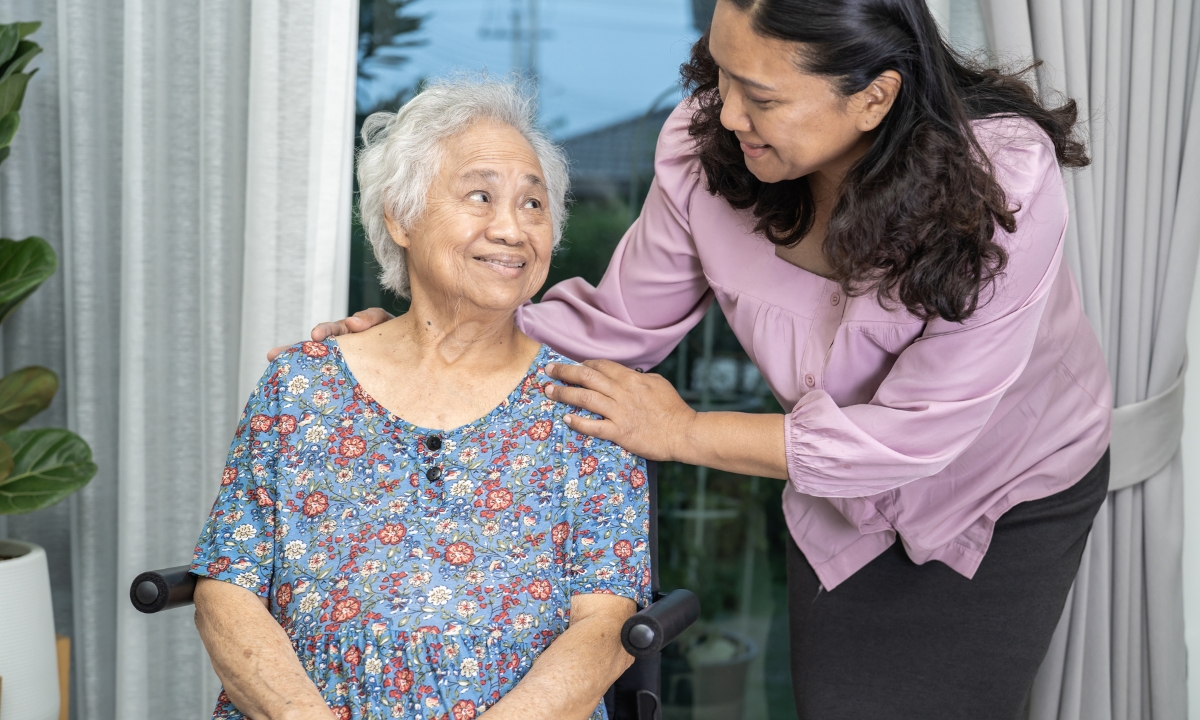Aging is a natural part of life, and as our loved ones grow older, their needs may change. Many seniors value their independence and wish to remain in their own homes for as long as possible. However, there comes a time when maintaining independence may require additional support to ensure their safety, health, and well-being. Knowing when to seek in-home care can be a challenging decision for families, but understanding the signs can help you make informed choices that honor your loved one’s desire for independence while ensuring they receive the care they need.
At Reliant Home Care Services, we understand how difficult this decision can be. If you’re uncertain if it’s time to consider in-home care, we can help. Let’s explore the signs that indicate it might be time to consider in-home care or assisted living and how to approach the conversation with your loved one.

Recognizing the Signs: When to Consider In-Home Support
Knowing when to seek in-home support can be difficult, especially if your loved one is determined to remain independent. However, there are several signs that suggest additional help may be necessary to ensure their safety and quality of life.
1. Difficulty with Daily Activities
One of the most common indicators that it’s time to consider in-home care is when your loved one struggles with activities of daily living (ADLs). ADLs include essential tasks such as:
- Bathing and grooming
- Dressing
- Preparing meals
- Taking medications on time
- Managing personal hygiene
According to the U.S. Department of Health and Human Services, nearly 70% of seniors will require some form of long-term care in their lifetime. If your loved one is finding it difficult to manage these basic activities, it may be time to explore in-home support.
2. Increasing Forgetfulness or Confusion
Mild forgetfulness can be a normal part of aging, but when memory issues begin to interfere with daily life, it may be a sign of a more serious cognitive decline. If your loved one frequently forgets to pay bills, misses appointments, or has trouble remembering names and faces, they may need assistance. In more severe cases, wandering or becoming disoriented in familiar places can pose serious safety risks.
The Alzheimer’s Association reports that over 6 million Americans are living with Alzheimer’s disease, and many more are experiencing other forms of dementia. In-home care can provide the supervision and support needed to keep your loved one safe and engaged.
3. Declining Health or Mobility
Physical health challenges are a common part of aging, but when chronic conditions become difficult to manage or when mobility declines, it may be time to consider additional help. Signs to watch for include:
- Frequent falls or difficulty moving around the house
- Unexplained weight loss or gain
- Difficulty managing chronic conditions such as diabetes, arthritis, or heart disease
According to the Centers for Disease Control and Prevention (CDC), one out of four older adults falls each year, making falls the leading cause of injury among seniors. If your loved one is experiencing mobility issues or has had multiple falls, in-home care can help prevent injuries and provide necessary support.
4. Social Isolation and Loneliness
Social interaction is crucial for mental and emotional well-being, but many seniors experience increased isolation as they age. If your loved one has become withdrawn, no longer engages in activities they once enjoyed, or has stopped maintaining social connections, it may be a sign they need more support.
A study by the National Institute on Aging found that social isolation and loneliness are associated with a higher risk of physical and mental health issues, including heart disease, depression, and cognitive decline. In-home care can provide companionship and encourage social engagement, improving overall quality of life.
5. Poor Home Maintenance and Personal Hygiene
If you notice that your loved one’s home is becoming cluttered or dirty, or if they are neglecting their personal hygiene, these can be signs that they are struggling to keep up with daily responsibilities. This can also be an indicator of underlying health issues, such as depression or physical limitations.
Approaching the Conversation: How to Talk to Your Loved One About In-Home Care
Discussing in-home care with a loved one can be challenging, as it may feel like an infringement on their independence. Here are some tips to help navigate this sensitive conversation:
Start Early: Don’t wait for a crisis to start the conversation. Begin discussing future care needs early so your loved one has time to process the information and express their preferences.
Be Empathetic and Respectful: Approach the conversation with empathy, acknowledging their feelings and fears. Emphasize that your goal is to support their independence, not take it away.
Involve Them in the Decision-Making: Encourage your loved one to be part of the decision-making process. Discuss different options and let them have a say in choosing a caregiver or deciding on the type of support they would prefer.
Focus on Benefits: Highlight the benefits of in-home care, such as improved safety, companionship, and the ability to remain in their own home. Reassure them that receiving help is not a sign of weakness but a way to maintain their quality of life.
Seek Professional Guidance: If your loved one is resistant, consider involving a healthcare professional or a counselor who can provide an objective perspective and help address concerns.

Why Choose Reliant Home Care Services?
At Reliant Home Care Services, we provide personalized, compassionate in-home care tailored to meet the unique needs of each client. Our services include assistance with daily activities, medication management, companionship, and specialized care for conditions like dementia and chronic illness. We work closely with families to create customized care plans that support the independence and well-being of your loved one.
Knowing when to seek in-home support for your loved one can be challenging, but recognizing the signs and having open, honest conversations can help you make the best decision for their health and happiness. At Reliant, we are here to support you and your family every step of the way, providing high-quality care that respects the dignity and independence of your loved one.
If you’re considering in-home care, contact us today to learn more about how we can help your loved one live safely and comfortably in the place they call home.

